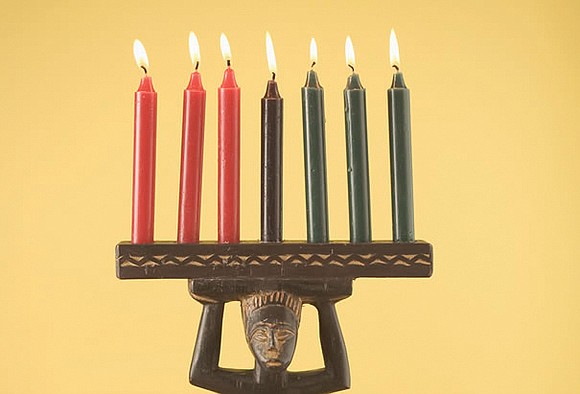Capital City Kwanzaa festival to go virtual beginning Dec. 26
Free Press staff report | 12/24/2020, 6 p.m.
Like many other holiday events, the Richmond area’s largest Kwanzaa festival is going virtual and also will provide evening shows online during the full seven days of the holiday that begins Saturday, Dec. 26, it has been announced.
Instead of a one-day gathering, the Capital City Kwanzaa Festival will offer activities and programming each day that seek to “capture the spirit and significance” of the yearly celebration and its guiding principles, according to Janine Y. Bell, founder and artistic director of the Elegba Folklore Society, which has staged the event annually since 1990.
“We’ll offer music, dance and messages and activities to strengthen families and galvanize the community,” Ms. Bell stated in announcing that the festival’s broadcasts would be available through Elegba’s website, www.efsinc.org, at 7 p.m. each day through the holiday’s end on Friday, Jan. 1.
Theme for the 31st annual event: “Love and endurance.” Performers who will make appearances on different days include Nigeria’s Toby Foyeh and Orchestra Africa, Cheick Hamala Diabate, Maimouna Youssef and North Carolina Poet Laureate Jaki Shelton Green, she stated, with Elegba’s African dance troupe appearing in each broadcast.
Ms. Bell stated that the African Market also will be open daily.
Nationally, the celebration of Kwanzaa was introduced by Dr. Maulana Karenga in 1966 with the aim of strengthening and uniting the African-American community. Dr. Karenga laid out seven principles that Kwanzaa promotes one day at a time: Umoja or unity; Kujichagulia or self-determination; Ujima or collective work and responsibility; Ujamaa or cooperative economics; Nia or purpose; Kuumba or creativity; and Imani or faith.
Ms. Bell stated that an estimated 28 million people world- wide now celebrate Kwanzaa, “a time of thanksgiving for the accomplishments of the past year, a time for reflection on the year ahead, a time for reaffirming values, a time for paying homage to ancestors and elders and a time for enjoying the blessing of children while preparing them for the future.”






